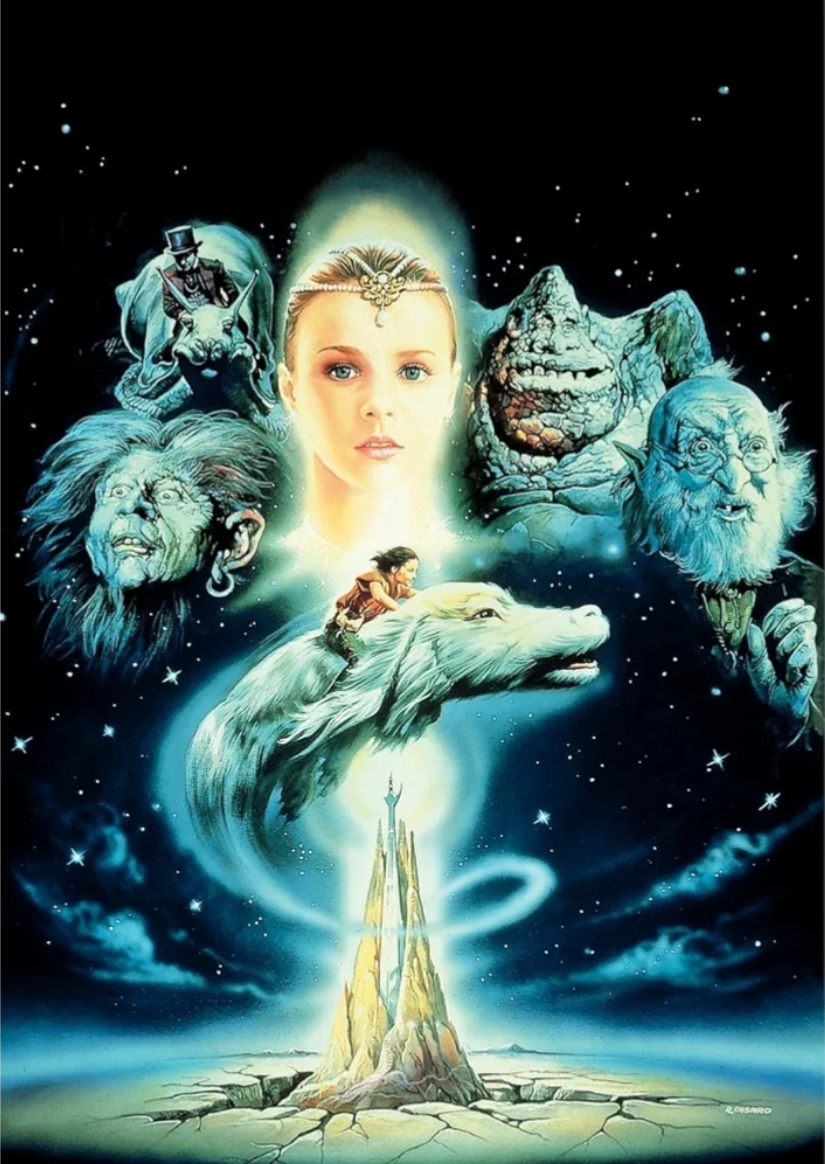Authors note: It is the desire of the author to look at the nothing and understand it as it is compared to nihilism. Our culture and world is experiencing it right now. We need to be able to identify, combat, and overcome nihilism.
The NeverEnding Story by Michael Ende is a rich and imaginative fantasy novel that explores themes of imagination, identity, and the search for meaning. Below is a detailed breakdown of the story, its characters, themes, and deeper messages:
Plot Overview
The book follows two intertwined stories: that of Bastian Balthazar Bux, a lonely and insecure boy, and Atreyu, a young warrior in the magical land of Fantasia.
Part 1: Bastian’s Discovery and Fantasia’s Crisis
- Bastian, feeling alienated and unhappy with his life, stumbles upon a mysterious book titled The NeverEnding Story in an old bookshop.
- As he begins reading, he is drawn into the story of Fantasia, a magical world under threat from a destructive force called “The Nothing.”
- Fantasia’s ruler, the Childlike Empress, is gravely ill, and her fate is tied to the land’s survival. She sends a summons for a hero to save Fantasia.
Part 2: Atreyu’s Quest
- Atreyu, a young warrior, is chosen to embark on a perilous quest to find a cure for the Empress.
- He travels across Fantasia, encountering challenges, including:
- The Swamps of Sadness, where his loyal horse Artax tragically succumbs to despair.
- Morla the Ancient One, a giant turtle who reveals the Empress’s illness can only be cured by a human from the “real world.”
- Ygramul the Many, a terrifying swarm creature, and Falkor the Luckdragon, who becomes Atreyu’s companion.
- Along the way, Atreyu learns that the Nothing is spreading because humans in the real world have stopped believing in Fantasia, imagination, and dreams.
Part 3: Bastian’s Role
- Bastian realizes that he is not just a reader but an integral part of the story. He must give the Childlike Empress a new name to save Fantasia.
- Overcoming his fears, Bastian shouts the name “Moon Child,” restoring the Empress’s vitality and halting the Nothing.
Part 4: Bastian’s Journey in Fantasia
- After naming the Empress, Bastian enters Fantasia himself, armed with the magical power to create anything with his wishes.
- However, each wish causes him to lose a piece of his memory, symbolizing the dangers of unchecked desire and losing one’s sense of self.
- Bastian embarks on his own adventures:
- Building a New Fantasia: He creates fantastical worlds and creatures but increasingly loses sight of who he is.
- Encounters with Power and Corruption: His desires lead to moments of selfishness and pride, alienating those around him.
- Guided by Atreyu and Falkor, Bastian learns to let go of his egotism and rediscover humility.
Return to the Real World
- Eventually, Bastian uses his final wish to return home, armed with newfound confidence and understanding. He reconciles with his father and faces life with a renewed sense of purpose.
Key Characters
Bastian Balthazar Bux: A lonely boy who evolves from a passive observer to an active participant in shaping Fantasia and his own life.
Atreyu: The brave and selfless warrior whose journey mirrors the struggle to preserve imagination and hope.
The Childlike Empress: A symbol of Fantasia’s purity and the creative spirit, dependent on human belief to exist.
Falkor the Luckdragon: A loyal companion to Atreyu, representing hope and perseverance.
Gmork: A servant of the Nothing, embodying despair and manipulation.
The Nothing: A metaphorical force representing nihilism and the destruction of imagination and meaning.
Major Themes
Imagination and Creativity: Fantasia is a reflection of human creativity, and its survival depends on humanity’s capacity to dream and imagine.
Identity and Self-Discovery: Bastian’s journey illustrates the importance of self-acceptance and the dangers of losing oneself in illusions of power.
The Power of Stories: Stories are depicted as life-giving forces that connect people, provide purpose, and preserve cultural memory.
Despair vs. Hope: The Nothing represents despair, while characters like Atreyu and Falkor embody the resilience of hope.
The Responsibility of Creation: Bastian’s wish-making shows the balance between creativity and responsibility, emphasizing the consequences of unchecked desires.
Symbolism and Deeper Meanings
- Fantasia as a Reflection of Humanity: The land of Fantasia symbolizes the collective imagination of humanity, fading as people lose their belief in creativity and wonder.
- The Nothing and Nihilism: The Nothing represents the existential void created when people abandon purpose, dreams, and belief.
- Bastian’s Name Loss: As Bastian loses memories with each wish, it reflects how the pursuit of superficial desires can erode one’s identity.
Legacy and Impact
- The NeverEnding Story remains a timeless tale about the importance of imagination, hope, and the transformative power of storytelling.
- Its themes resonate across generations, reminding readers of the value of creativity and the dangers of cynicism or despair.
Michael Ende’s The NeverEnding Story is a profound exploration of imagination, human connection, and the struggle to find meaning. Its layers of symbolism and universal themes make it a rich and enduring work that continues to inspire readers to cherish their creativity and embrace the power of stories.
In The NeverEnding Story, the “Nothing” is a destructive force consuming the fantastical land of Fantasia, representing despair, hopelessness, and the erosion of imagination and meaning. This concept aligns closely with the philosophical idea of nihilism, which posits that life lacks inherent meaning, value, or purpose. Here’s a detailed exploration of how nihilism is embodied in the “Nothing” and its implications:
The Nature of the “Nothing”
- Definition: The “Nothing” is not a tangible entity but an absence—a void consuming everything it touches, leaving no trace of the vibrant world of Fantasia.
- Symbolism: It represents existential despair, the belief that nothing matters, and the collapse of hope and creativity.
In nihilism, the denial of meaning parallels the Nothing’s erasure of Fantasia, a place built on imagination and human stories.
Nihilism and the Loss of Imagination
- Fantasia is the embodiment of human imagination, filled with vibrant stories and diverse characters.
- The “Nothing” spreads as people in the human world lose their capacity to dream, imagine, and believe in stories.
- This mirrors how nihilism dismisses imagination and creativity as futile, leaving individuals disconnected from a sense of purpose.
The Manipulation of Despair: Gmork’s Role
Gmork, the wolf-like creature working for the “Nothing,” represents those who propagate nihilism by spreading despair:
- Spreading Hopelessness: Gmork explains that humans without hope become susceptible to manipulation, turning into mindless consumers or pawns.
- In Our Current Culture: We Are “Drug Addicts”
- Breaking Spirit: By fostering cynicism and despair, Gmork ensures that people stop dreaming, fueling the “Nothing’s” advance.
This reflects the darker side of nihilism, where the absence of meaning leaves individuals vulnerable to external control or apathy.
- Welcome to Prison Planet: Slaves R Us And What We Can Do About on a Personal Level
- People Grow Up Internalizing the Culture They Are Born Into, Unaware of Subtle Manipulation & Corruption
- Tyrants Weapons: Destroy History, Tradition, Family and Culture
Atreyu’s Quest as a Fight Against Nihilism
Atreyu, the hero of The NeverEnding Story, represents resistance to nihilism:
- Courage in the Face of Despair: Atreyu’s journey is filled with obstacles, yet he persists, embodying the human capacity to find meaning even in adversity.
- Seeking Connection: His quest to save Fantasia mirrors the fight against nihilism by reconnecting people to their imagination, stories, and values.
His determination highlights the potential to overcome the “Nothing” through belief, courage, and purpose.
Bastian’s Role: Rediscovering Meaning
Bastian, the boy reading the story, is initially disconnected from his own life and imagination. As he becomes part of Fantasia, he:
- Embraces Responsibility: By giving the Childlike Empress a new name, he revives Fantasia, symbolizing the reclamation of meaning and creativity.
- Rebuilds the World: With his wishes and imagination, Bastian restores Fantasia, illustrating that meaning can be created even in the face of nihilism.
This shows the transformative power of imagination and belief in combating despair and creating purpose.
Nihilism’s Consequences in Fantasia
- The “Nothing” consumes Fantasia piece by piece, erasing its beauty, diversity, and life.
- As human beings lose faith in imagination and wonder, they stop contributing to Fantasia’s existence, allowing the “Nothing” to thrive.
- This reflects how nihilism can strip life of its vibrancy and reduce existence to monotony and apathy.
Overcoming the “Nothing”
The ultimate message of The NeverEnding Story is that the “Nothing” (nihilism) can be overcome through:
- Imagination: Embracing creativity as a means to find meaning and purpose.
- Hope: Believing in the possibility of renewal, even when faced with despair.
- Storytelling: Recognizing the power of stories to inspire, connect, and give life meaning.
The “Nothing” in The NeverEnding Story is a poignant metaphor for nihilism, symbolizing the void created when people lose their sense of meaning, imagination, and purpose. Through the journeys of Atreyu and Bastian, the story underscores the importance of hope, creativity, and belief in combating the destructive forces of despair. It’s a powerful reminder that even in the face of the “Nothing,” the human spirit has the capacity to rebuild and find meaning anew.
Overcoming nihilism requires confronting its core ideas—the belief that life lacks inherent meaning or value—and cultivating purpose, connection, and hope. Here are actionable strategies to overcome nihilism:
Cultivate a Sense of Purpose
- Define Personal Meaning: Meaning doesn’t have to come from external sources; it can be created through relationships, passions, and personal goals.
- Set Achievable Goals: Start with small, meaningful tasks and build toward larger aspirations to foster a sense of accomplishment and direction.
- Engage in Service: Helping others can provide fulfillment and a sense of belonging, countering feelings of insignificance.
You Have To Fall In Love With Boredom
Embrace the Power of Connection
- Build Relationships: Deep connections with friends, family, and community can anchor you and provide a sense of purpose.
- Seek Belonging: Join groups or causes that align with your values or interests to foster a sense of shared meaning.
- Share Vulnerabilities: Opening up to others about your struggles can reduce isolation and strengthen bonds.
Reframe Nihilism Through Philosophy
- Absurdism: Embrace the philosophy of Albert Camus, who suggests that while life may lack inherent meaning, we can still create our own and find joy in the struggle.
- Existentialism: Thinkers like Viktor Frankl and Søren Kierkegaard advocate for finding meaning through personal responsibility, relationships, and transcendent values.
- Stoicism: Focus on controlling your responses to life’s challenges and finding peace in acceptance and action.
Embrace Creativity and Expression
- Create Art: Painting, writing, music, or any form of creative expression can be a way to process emotions and find meaning.
- Engage with Stories: Books, films, and myths can provide insights and help reframe your understanding of life.
- Appreciate Beauty: Spending time in nature, appreciating art, or engaging in mindfulness can remind you of life’s inherent wonders.
Develop a Spiritual Perspective
- Explore Faith or Spirituality: Many find meaning through religious beliefs or spiritual practices that offer transcendence and a sense of purpose.
- Practice Gratitude: Acknowledging the positive aspects of life, even in small ways, can help combat nihilistic thoughts.
- Meditation and Mindfulness: Quieting the mind and focusing on the present moment can create a sense of peace and connection.
Confront and Accept Mortality
- Acknowledge Death: Recognizing the finite nature of life can provide urgency to live meaningfully and intentionally.
- Legacy Thinking: Focus on the impact you can have on others, whether through relationships, work, or contributions to the world.
Take Responsibility for Your Freedom
- Choose Your Path: Nihilism can offer freedom by stripping away societal expectations. Use that freedom to craft a life you find fulfilling.
- Engage in Action: Even when meaning feels elusive, taking action can foster a sense of control and purpose.
Build Resilience Through Growth
- Adopt a Growth Mindset: See challenges as opportunities to learn and grow, rather than as meaningless obstacles.
- Focus on Progress: Celebrate small wins to build confidence and momentum.
- Learn Continuously: Pursuing knowledge can provide intellectual stimulation and a broader perspective.
Find Joy in the Present Moment
- Practice Mindfulness: Engage fully in the present moment to find satisfaction and peace.
- Celebrate Simple Pleasures: Find meaning in everyday joys, such as sharing a meal, a kind word, or a moment of laughter.
- Let Go of Perfection: Accept life’s imperfections as part of its beauty and mystery.
Seek Help When Needed
- Talk to a Therapist: A mental health professional can provide tools to navigate existential crises and nihilistic thoughts.
- Join Support Groups: Connecting with others who have similar struggles can foster understanding and solidarity.
- Read Inspiring Works: Books like Viktor Frankl’s Man’s Search for Meaning offer powerful perspectives on finding purpose even in the darkest times.
Key Mindset Shift
Instead of seeing nihilism as a dead end, view it as a blank canvas—a chance to define your own purpose, values, and direction. Life’s lack of inherent meaning can be an opportunity to create something uniquely yours.
By actively seeking meaning and embracing the freedom to create your own purpose, you can overcome nihilism and live a life that feels fulfilling, connected, and rich with significance.
Watch The NeverEnding Story below:








2 Responses
Next week WALL-E existance.
the week after, Brave New World Vs. 1984.